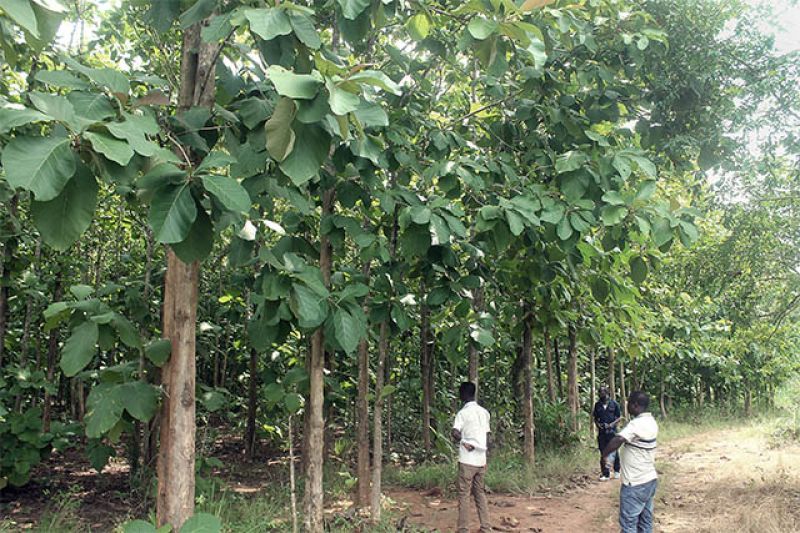The Forest Plantation Development Fund Board has debunked claims that it has not been transparent in its operation, intimating that the board will soon publish details of how many trees it has helped plant over the years.
Speaking on the issue, a member of the governing board of the fund, Dr. Emmanuel Marfo, pointed out that the board has commissioned the Forest Research Institute of Ghana to collate data on the work it has done which will be made available to the general public.
“We are asking the Forest Research Institute to help us put together all the projects that we have supported and done so, we can come out with a publication of a sort so that, people will know that the fund exists and this is what we have been able to do over the years.”
However, a report published by the Environmental NGO, Nature and Development Foundation (NDF), spelt out that the timber industry was not in the know of the disbursements of funds and therefore cannot find any evidence of work done by the forest plantation developers. The Director of the NDF, Mustapha Seidu further stated that “we can’t seem to find any evidence of its work.”
Giving support to NDF’s claims, Mr. Richard Nsenkyire, Chairman of the Forest Industries Association of Ghana, also intimated that the Forest Plantation Development Fund Board has not fulfilled its mandate of planting more trees.
Contrarily, Dr. Marfo denied claims stated in the NDF report that the board had not also put out the criteria for which plantation developers can access the fund. “The process is transparent. You come here, you apply, you bring your papers. Whether you are getting a grant or a loan, whatever you ask for and whatever we can offer, we come in and offer,” he posited.

In furtherance of proving that the claims on the Fund Board is wrong, Dr. Marfo stressed that majority of the support went to small scale farmers and not large-scale plantation developers because of lack of resources by the fund, stating that the fund have failed to put empirical data together and so, would not be able to speak concretely to the impact on the farmers. However, he noted that thousands of persons have been supported individually and have benefited in establishing their plots.
“Traditionally, we have been focusing on individual farmers. Moving forward, as we explore other avenues and bring in other timber species that are exported to the table, we will explore the option of supporting the timber industry too.”
Pledging assurance, Dr. Marfo promised that the members of the timber industry and large-scale plantation developers will soon benefit from the fund as it works to diversify its sources of revenue, explaining that the fund is hoping to tap into funds from international grants to support large scale plantation developers. “So, we want to tap into the Green Fund so we can source for money to also help… Because that is where the more money will come especially in the context of climate change and all that,” he persuaded.
Meanwhile, the Chairman of the Forest Plantation Development Board, Nana Osei Yaw Barima, has confirmed that the fund has not been supportive towards the plantation developers because, the fund has scarce resources, making an analysis that, “If the whole fund is getting less than ¢10 million the whole year, how can it make an impact? It means you can’t even assist farmers to develop 1000 hectares,” he added.
The Forest Plantation Development Fund Board has been authorized to receive levies charged on the export of unprocessed and air-dried timber. It has been mandated by an act of parliament passed in the year 2000, to use the levies to develop tree plantations.



















